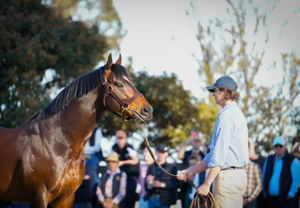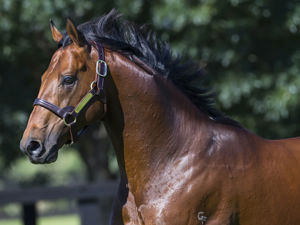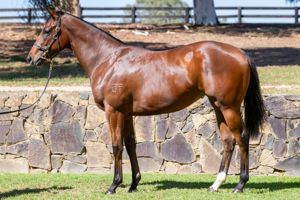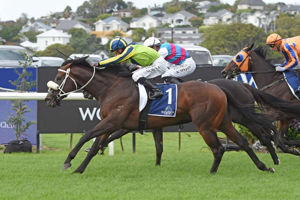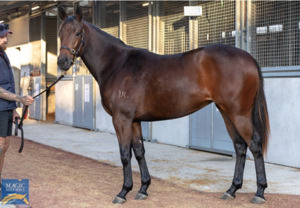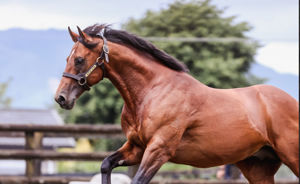Australia is one of the great horse racing countries of the world, a fact that has come into sharp focus due to the world class performances of many of its racehorses on the world stage over the last twenty-five years. Consider the performances of the likes of Choisir, So You Think, Haradasun, Elvstroem, Black Caviar, Nature Strip and, of recent times, Asfoora, at Royal Ascot in the past 25 years. The legendary Winx was rated the world’s No.1 horse in 2017, sharing this ranking again in 2018.

The Horse Breeding industry is flourishing due to increased interest and investment in horse racing. Despite initial setbacks from the COVID-19 pandemic, online auctions and rising discretionary incomes have led to a surge in horse investment and sales.
Baumgartners is a member of the worldwide Alliott Global Alliance, consisting of independent accounting, law and specialist firms, the reach of the alliance extends deep into Europe, Africa, the Middle East, North America, Latin America and the Asia Pacific. Accordingly, this is the type of article we send to our network to familiarise themselves with our industry.
1.An industry on the rise
Australia's growing reputation for producing high-quality thoroughbred racehorses has fuelled increased domestic and international demand for Australian stud farms. This trend has allowed players like Godolphin and Coolmore Stud to expand in the industry.
Consider the following strong KPI’s for our industry:
- As an industry, our economic contribution is around $9.5 billion with 51 per cent (or $4.8 billion) of economic activity generated in regional Australia
- Per latest statistics, total horse owners in Australia are 141,190
- Total prizemoney and bonuses available are now at $1.066 billion, amongst the top five in the world and an increase of approximately 10% from 2022
- Auction sales results across all horse types was approximately $670 million in 2023
- Average amount for yearlings sold is now just over $120,000
- 309 black type races available to be won
- Total wagering turnover is approximately $27 billion per annum – crucial in driving prizemoney and asset values
- Horse breeding employs approximately 3,900 people and has just over 3,400 businesses
The industry is set to continue expanding over the coming years. Australia's reputation for producing high-quality horses for racing will continue to support strong demand from domestic and overseas customers. As a result, export revenue is poised to climb over the coming years. Rising overseas and domestic demand is set to boost industry-wide profit margins.
- Structuring to consider when investing in Australia
Generally, the Australian horse tax system is inviting and favourable to foreign investors – certainly compared to our global competitors.
- Business entities available
A person can conduct business in Australia as a sole trader, in partnership, through a trust, through a joint venture or as a corporation.
Trusts – tax warning
In the case of a trust beneficiary (not under a legal disability) who is a non-resident at the end of the year and is entitled to a share of trust income, the trustee is taxed on behalf of the non-resident beneficiary, i.e., offshore distributions do not exempt that income from Australian tax. That is, the trustee is taxed on the beneficiary’s share of the trust’s net income from Australian sources (excluding dividends, interest and royalties) and from foreign sources attributable to any period during the year when the beneficiary was resident for tax purposes.
Companies that are incorporated outside of Australia that wish to carry on business in Australia must either incorporate a wholly owned or partly owned subsidiary company in Australia or register as a foreign company conducting business in Australia (commonly known as establishing a branch office in Australia).
Most foreign companies conduct business in Australia through a wholly or partly owned subsidiary or through an Australian branch.
- Companies
Foreign companies may establish an Australian subsidiary by registering a new company.
Historically, it is common to acquire a recently incorporated shelf company which had not yet carried on business.
Proprietary companies are often used for private ventures or as subsidiaries of public companies. There are no restrictions on the size of a proprietary company, except the restriction on the maximum number of shareholders.
A proprietary company:
- may either be classified as a large proprietary company or a small proprietary company depending on certain criteria
- provides limited liability for its members
- may not have more than 50 non employee shareholders, excluding CSF shareholders
- cannot engage in fundraising activities in Australia that would require the lodgement of a prospectus or other disclosure document
- must meet certain tests to be able to carry forward losses
- must have at least one Australian resident director but need not have a secretary (if a secretary is appointed, that secretary must be an Australian resident) and
- must have the words "Proprietary Limited", 'Pty Limited" or "Pty Ltd" in its name if it is a limited proprietary company
- An Australian Branch
The establishment of an Australian branch may be preferable to incorporating a subsidiary if one of the objectives is to consolidate the financial results of the company in the place of residence of the overseas company and to avoid some of the administrative burdens of managing another separate entity. The establishment of an Australian branch by a foreign company might create a permanent establishment (PE) in Australia for tax purposes. If a
foreign company wishes to directly conduct business itself in Australia and not through a subsidiary, it must be registered as a foreign company under the Corporations Act.
Registration of a foreign company does not create a separate legal entity; rather it creates a public record registration of a foreign company's presence in Australia.
An Australian resident company is liable to pay Australian tax on all of its worldwide assessable income. The general corporate tax rate is 30 per cent. Certain smaller companies - broadly those with an aggregated turnover of less than AUD50 million - have a tax rate of 25 per cent for the 2021-22 and later income years.
An Australian permanent establishment of a foreign company would also be subject to Australian corporate tax at the rates outlined above.
- Goods and Services Tax (GST)
The GST is based on the value added tax (VAT) model adopted in most countries around the world. GST is levied at a rate of 10 per cent of the taxable value of most goods, services, rights and property in Australia (including imports).
Generally, GST does not apply to exports of goods or services consumed outside Australia. For example, most yearling sales to overseas countries (e.g., Hong Kong) are transacted on a GST-free basis.
Some key points in relation to GST are listed below.
- If an entity is carrying on an enterprise, and its GST turnover equals or exceeds the annual GST registration turnover threshold, then it must register for GST. This threshold is currently AUD75,000
- Entities who do not breach this threshold can register for GST voluntarily if they are carrying on an enterprise anywhere in the world
- GST is payable at the rate of 10 per cent on the supply by a GST registered entity of most goods, services or intangibles, except to the extent that the supply is "input taxed", "GST free" or "outside the scope" of GST (see below). The supplier is legally liable for any GST payable.
- Subject to certain exemptions, GST is also payable on the importation of goods at the rate of 10 per cent of the value of the taxable importation. The Department of Home Affairs will collect GST from importers of goods at the time of importation, unless the entity is registered for the deferred GST scheme (in which case the relevant GST amount will be remitted to the Australian Taxation Office in the importer's next monthly GST return)
- Registered entities are generally entitled to claim an input tax credit for GST paid on things acquired in carrying on their enterprise. A four-year time limit is in place to limit retrospective input tax credit claims. No input tax credits are available for acquisitions that relate to making input-taxed supplies, or for anything acquired or imported for private consumption
- GST returns must be lodged on a quarterly basis by suppliers with a GST turnover of less than AUD20 million, unless they elect to lodge returns on a monthly basis. Suppliers with a GST turnover of AUD20 million or more must lodge their GST returns on a monthly basis. Taxpayers can elect to lodge annual GST returns if they are not required to be registered for GST
- Non-resident individuals and companies must also submit additional information when registering for GST, including proof of identity documents. This is an onerous process that should be prepared and submitted by an appropriate Australian tax agent
- Major taxation issues and incentives for horse investors
In summary, these are:
- Special write-off rules for stallions and broodmares. Mares can be systematically written-off to $1 by the age of 12. A mare acquired at age 12 or older can be immediately written-off to $1. Stallions can be written-off, on a straight-line basis, at a maximum rate of 25% per annum.
- Our Australian Taxation Office (ATO) will allow only the claiming of income tax losses (assessable income is exceeded by allowable deductions) for a horse activity if they meet certain criteria, the main criteria being:
- Profit intention (supported by a Business Plan)
- Activity is systematic and organized
- Selling mentality for foals
- Racing limited to stock that is “inherently connected” to the breeding activity – the ATO rarely allows “stand-alone” racing activities
- Scale of activities (e.g., mare numbers)
- Consistent growth
- Breeding property
- Use of experts
- Keeping proper records
- Prospect of profit
- Sales must be on a commercial basis
- Regularity of activity
- Insurance proceeds for horse breeders can be spread over 5 years
- A “hobby” non-resident horse owner is exempt from capital gains tax on the sale of an Australian racehorse. Furthermore, stakes money is not taxed, nor are expenses deductible
- Non-resident individuals cannot access the 50% CGT discount on the sale of a property here
- There are many other concessions for primary producers in Australia, including 100% write-off of fencing expenses
- Fringe Benefits Tax (FBT) must be considered when employing Australian employees and farm workers, though housing benefits are exempt if provided in designated ATO “remote” areas
Please contact me if you wish for me to clarify or expand on any of the matters raised in this article.
Prepared by:
PAUL CARRAZZO CA
Partner - Baumgartners
1/35 Cotham Rd, Kew, VIC, 3101
TEL: +61 3 9851 9000
MOB: 0417 549 347
E-mail: p.carrazzo@baumgartners.com.au


